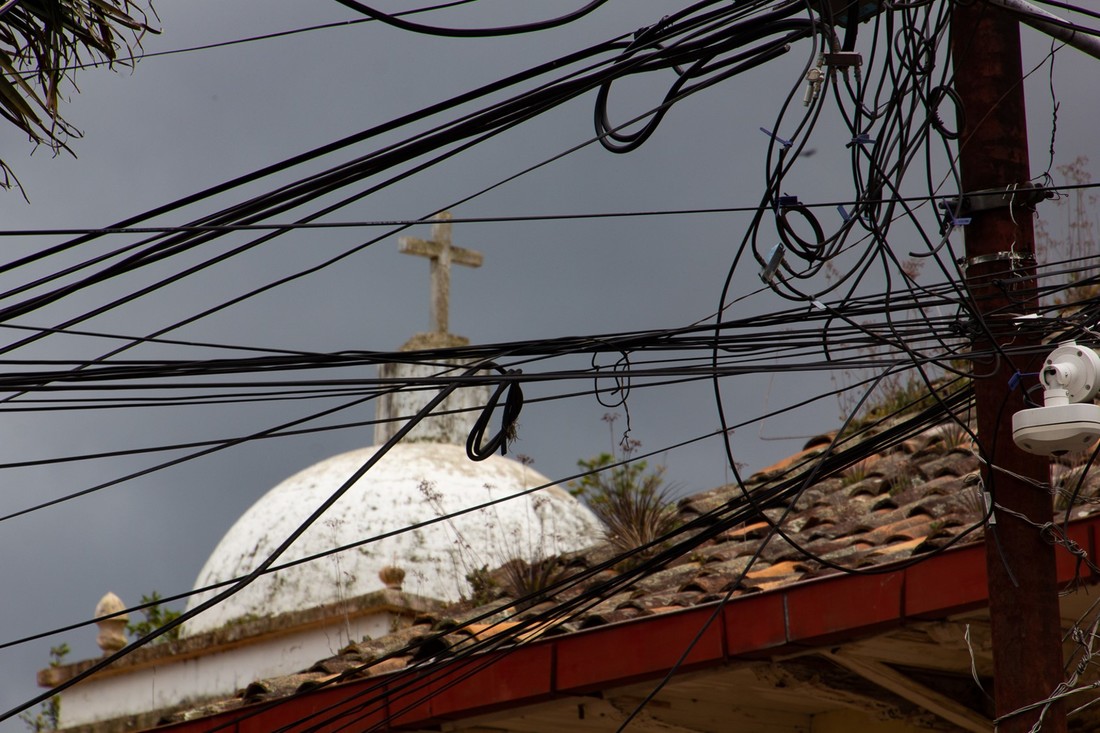Scott AndersonJeremiah 31:7-9 † Psalm 126 † Hebrews 7:23-28 † Mark 10:46-52
So how do you tell the difference between a crowd and a mob? How do you know? What are those markers that help to make the distinction? Mark tells us at the beginning of today’s gospel lesson that Jesus and his followers pass through Jericho, and just as quickly, they leave. Nothing happens, except that Mark notes a large crowd follows Jesus out of town. Or is it a mob? Or a caravan? I would imagine once the word made it to Jerusalem, it might have felt like a mob—at least to the political and religious leaders of Jerusalem who felt the pressure of an unsettled population. Especially after Bartimaeus refuses to remain silent: “Son of David, have mercy on me.” In other words, do something.
0 Comments
Scott AndersonIsaiah 35:4-7a † Psalm 146 † James 2:1-7 † Mark 7:24-37
I had a conversation this week with a mom whose child is something of a challenge at the moment. Her description of the behaviors, the wild fluctuations between kind and crazy, tenderness and nastiness, tolerance and small-mindedness brought me back to my own days as a college student and young adult. I remember even today the struggle that raged within myself. There were times when it almost seemed like an out-of-body experience—I was angry and ugly and yet there was a more mature adult part of me that watched from the outside fully aware of a better way to be but not sure how to get there. I hope I was helpful to the mom as I was able to reassure her this is a part of the growth from childhood to adulthood—that the work of transitioning from one to the other involves weighing the values and beliefs and perspectives we’ve inherited from our parents and other adults, evaluating them, testing them, and ultimately accepting some for ourselves, making them our own, while perhaps rejecting others. Many developmental psychologists have spoken of this work and of the importance of creating space for this work to happen. It can be incredibly painful at times for us because, if you’re a parent of mentor, it can feel like you are being rejected, but in the long run it is what’s necessary for identify formation. There is a sense that there’s some developmental work that Jesus is doing in this story in Mark. It’s a curious thing to consider as we play with these classical Christian notions of Jesus’ identity as both fully human and fully God. Scott Anderson2 Kings 4:42-44 † Psalm 145:10-18 † Ephesians 3:14-21 † John 6:1-21 In the fall of 2014 IHNFA, the Honduran Childcare services were restructured by a Honduran government that was under pressure from UNICEF and in a season of reform. It had been an open secret for some time that the majority of the IHNFA budget was enriching administrators and bureaucrats rather than serving the vulnerable and abandoned children it was charged to protect. Many services were cut, including the government-run children’s homes and some of its foster programs. This created its own challenges in a country of 8.5 million people in which 138,000 are already without a home and more than 1 million are housing insecure.
Maggie BreenEzekiel 2:1-5 † Psalm 123 † 2 Corinthians 12:-10 † Mark 6:1-13
So I lead a bit of a double life. I have since I started in this work of ministry. I work part of my time here at St Andrew thinking and learning with you all about how we offer our gifts for the sake of compassion and justice and peace, and for part of the time I work outside of this congregation thinking and learning with others about how the church and people of faith best show up and partner to make a difference in the world. This arrangement is partly by necessity. The church is changing, and pastors’ jobs must look different if we are going to be sustainable. And it’s partly, maybe more so, by design. Jobs like mine and Julie Kae’s, and many others in bi-vocational roles, help position the church to be in closer conversation with how this life we proclaim gets lived out and what we can learn from the Spirit as it is at work in the world. Currently the work outside of the walls of the church has me at Seattle University working with scholars and practitioners to see what we can learn around what it takes for congregations, and faith-based service organizations, advocacy groups, and community organizers to be effective in moving society towards one where all neighbors are able to flourish. In the course of this work I get to talk with all sorts of people. I get to hear from leaders and activists and ordinary folks of all stripes about the work they are called to, what they are challenged by and what they are learning as they meet these challenges in innovative and life-giving ways. On Friday, I was sitting with two folks who work with an organization that has been on the streets caring for those with no safe place to go for years and years. They are out of a tradition that has the care of unhoused neighbors deep in their DNA. They work long hours and are grounded in a deep faith and prayer life. They have extensive partnerships and are looked to by their local police, hospitals and government as a reliable place to turn to when no one else can help. And on the spectrum of progressive to conservative, liberal to evangelical, it is pretty widely known that their tradition sits, for the most, part right of center. |
St. Andrew SermonsCategories
All
|

 RSS Feed
RSS Feed